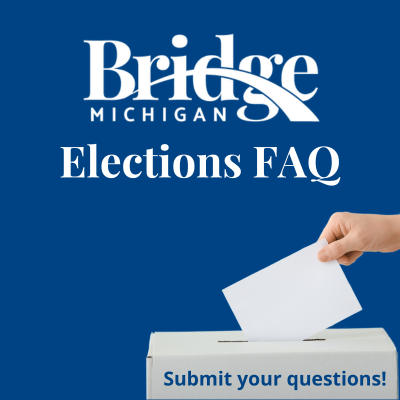Meet the Michigan voters who may decide the election for Trump or Harris

- Kamala Harris and Donald Trump are making special efforts to reach specific voting blocs as they seek to win Michigan and White House
- In a state decided by narrow margins in 2016 and 2020, women, Black men, Arab Americans and others could play a deciding role
- Trump and Harris are trying to build winning coalitions in the midst of a major political realignment unfolding in Michigan and nationwide
LANSING — Amid a major political realignment that is unfolding nationwide, Donald Trump and Kamala Harris are targeting key voting blocs in Michigan that could help decide the presidential election.
Trump, in unprecedented fashion for a modern Republican nominee, is attempting to persuade union workers, Black men and Arab Americans to cast ballots for him by Nov. 5.
Harris is fighting to hold on to many of those same voters while dominating with women and openly urging disaffected Republicans to back her Democratic campaign, an effort boosted by several high-profile GOP endorsements.
Recent surveys suggest Harris and Trump are effectively tied in Michigan. And "in a close race, everyone's electorally significant,” longtime Michigan pollster Richard Czuba told Bridge Michigan.
Both major party candidates are counting on subtle shifts in a few key constituencies to carry the day in their favor.
Their frequent trips to Michigan reflect the reality that "everything is razor-thin," said Dave Dulio, a political science professor at Oakland University.
“The big movements are not important,” Dulio added. “It's the marginal movements this time that are going to potentially make the difference.”
Related:
- Election 2024: Nearly 2.2 million Michigan voters have cast ballots so far
- Michigan canvassers nearly blocked 2020 votes. Could it happen again?
- Michigan elections FAQ: Voter ID, drop boxes, registration, NDAs and more
Experts say it's important to embrace the nuance when assessing voting blocs.
People are complicated. Demographic labels like age, race, education and income don’t place folks in a vacuum. An individual's upbringing, their community, faith and life experiences vary widely, all of which shape their views on the issues that motivate voters — or keep them home.
Still, both campaigns are targeting key groups in a bid to forge a winning coalition in an election cycle upended by President Joe Biden's decision to withdraw from the race in July.
Here are some of those key voting groups that could decide the election in Michigan — and beyond.
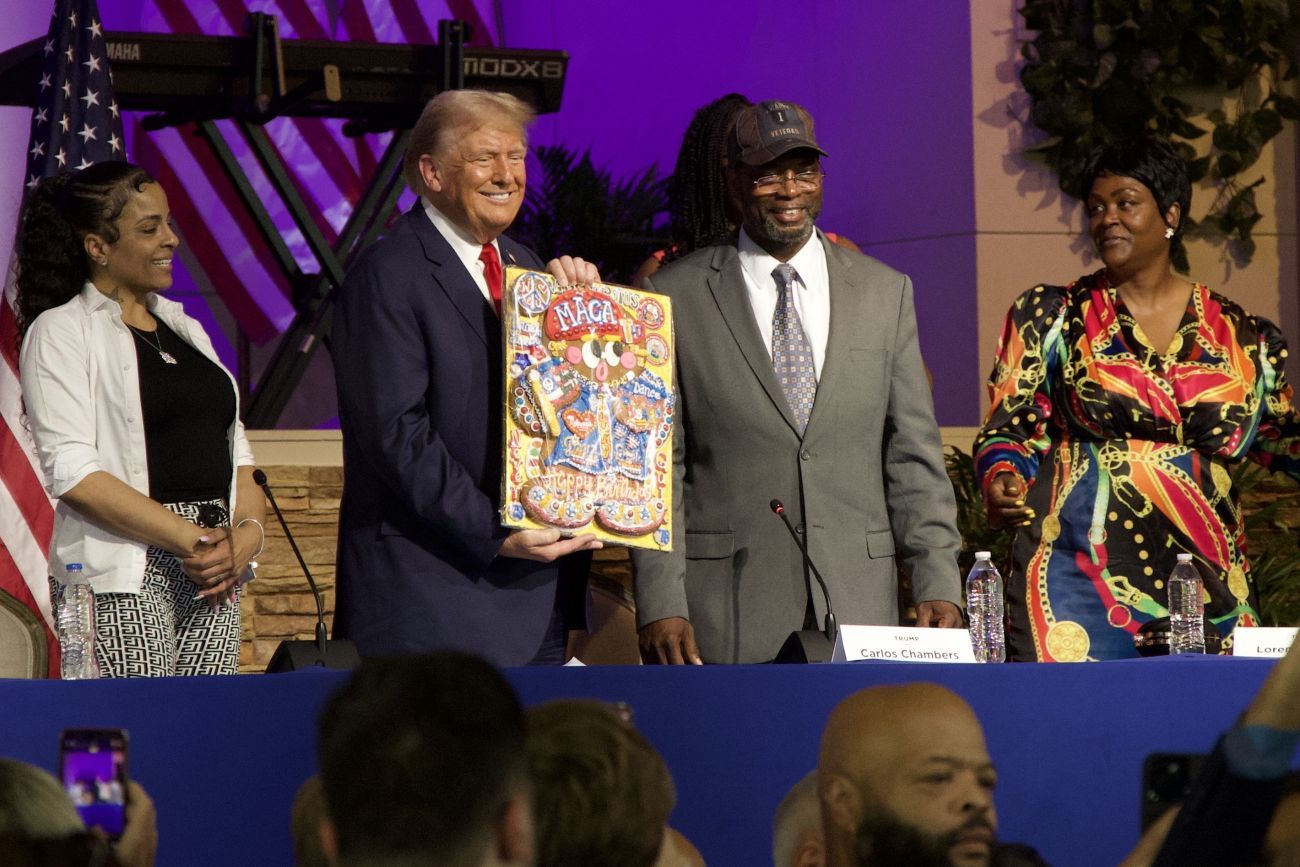
Black men: Trump makes inroads
The centers of Black life in Michigan — Detroit, Flint, Saginaw, Muskegon — are overwhelmingly Democratic. They’re also areas Republicans believe they will successfully sway some voters, young men in particular, away from Harris.
Black men are increasingly “leaning conservative” because they share traditional Republican values on the economy, limited government and social issues on abortion and gay rights, said Martell Bivings, a longshot US House candidate in Michigan’s 13th Congressional District, which includes most of Detroit — the nation’s largest majority-Black city
But Black women have been among Democrats’ most reliable voting blocs, and Bivings acknowledged that “for every three to five Black men, there's one Black woman that will support Donald Trump.”
“You have to be here. You’ve got to be in the community to pick that up,” he added.
Trump’s campaign has spent considerable time in these communities, relative to other past GOP campaigns, making multiple stops in Detroit and Flint, though at those events the crowds have remained largely white.
Trump has notched the endorsement of a few local rappers, such as Peezy, who have substantial followings on social media. He’s also recruited some prominent surrogates, including former Detroit Mayor Kwame Kilpatrick, whose 28-year federal prison sentence for public corruption Trump commuted in 2020.
Trump only carried a small minority of Detroit voters broadly in 2020, about 5%. But that was up from 3% in 2016, and he’s banking on growing that minority this year, even if winning the city is highly unlikely.
The Republican nominee may have complicated those efforts earlier this month, when in Detroit he compared the city to a developing nation and claimed, "our whole country will end up being like Detroit” if Harris is elected — “a mess.”
Harris’ campaign has made hay with the comments. Less than 24 hours after his remark they debuted an ad highlighting it.
Harris’ campaign has sought to rebuff Trump’s efforts by unveiling an “Opportunity Agenda for Black Men, and she sat for an interview with a popular Black radio host in the city.
Former President Barack Obama, who campaigned for Harris in Detroit earlier this month, has targeted Black men in his messaging. And state officials, including Democratic House Speaker Joe Tate of Detroit have held a series of “barbershop town halls” to discuss issues impacting Black men.
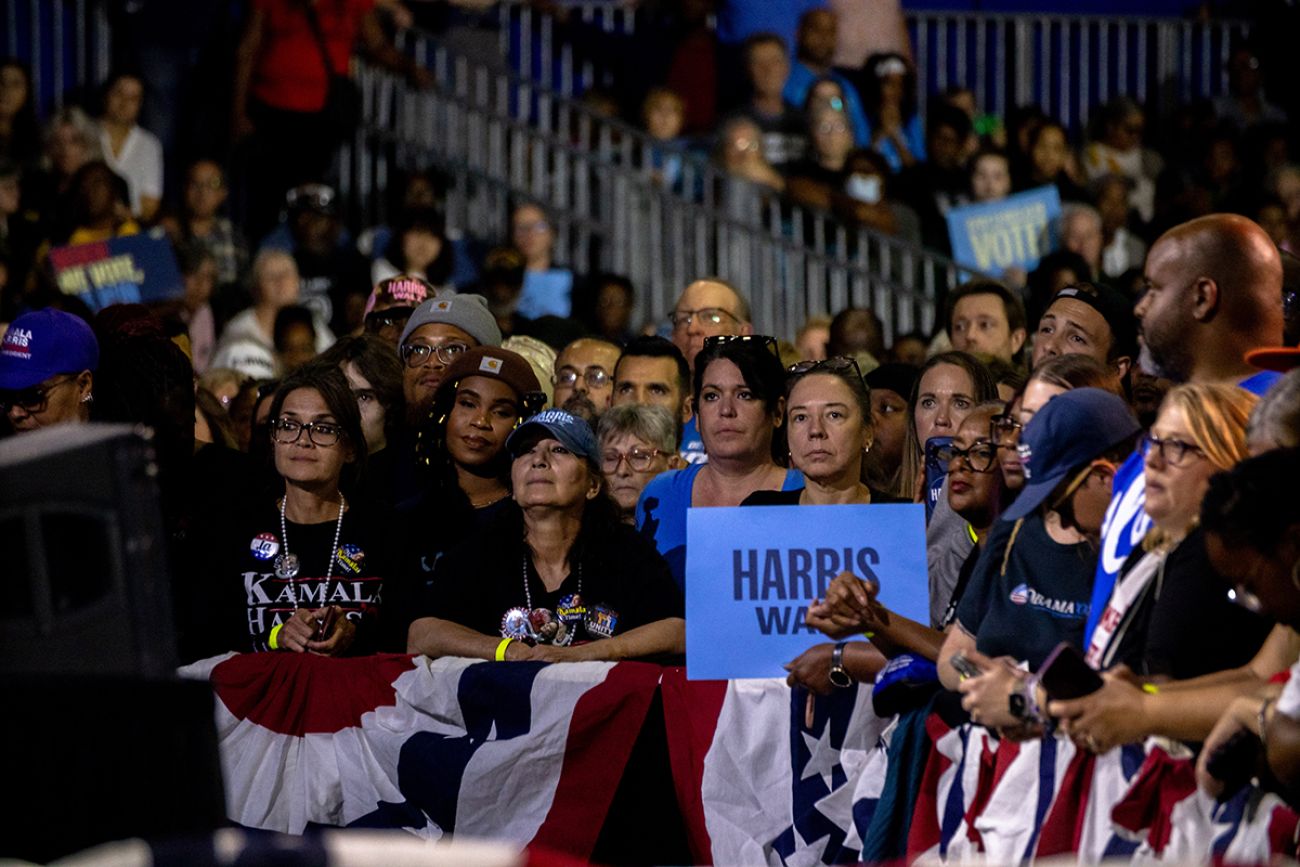
Women: A potentially record-setting advantage for Harris
Two years after Trump nominees on the US Supreme Court helped overturn national abortion protections, polls suggest Harris is dominating with women voters as she seeks to become the country’s first-ever female president.
A mid-October poll conducted by Quinnipiac University showed 57% of women support Harris, as compared to 40% of men. While 56% of men said they would support Trump, just 37% of women did. It mirrors polling from The New York Times/Sienna College which showed similar results at the end of September.
That suggests this year’s gender gap could be the largest since at least 1980, according to the Center for American Women and Politics. How wide Harris grows her advantage with women could be a key factor in deciding the election, especially in suburban regions where Democrats made big gains in 2020.
Democrats know it and have been exploiting the divide to full effect, making reproductive rights a key talking point in virtually every close race in the state, up and down the ballot.
Michigan women see Harris as a relatable candidate that shares their interests, Gov. Gretchen Whitmer said at a campaign event in Rochester last week.
Whitmer largely ran on abortion rights during her reelection campaign in 2022, when she shared the ballot with Proposal 3 to enshrine abortion access in the Michigan Constitution. She won her race by nearly 10 percentage points amid record turnout for a gubernatorial election.
Right to Life of Michigan, an anti-abortion group, urged candidates in a recent news release to “discuss solutions to economic woes and border security” instead of their central issue, arguing “abortion is not on the ballot.”
That hasn’t dissuaded Whitmer. Six months after her second inauguration, Whitmer formed a federal political action committee called Fight Like Hell which has continued that messaging nationwide in federal elections.
In her reelection campaign, Whitmer said she encountered women who voted against her in the past but told her they would support her due to the immediacy of abortion rights issue. “I think we're seeing some of that play out as well (In 2024)," she added.
Kelly Dittmar, the research director for the Center for American Women and Politics, noted that women have become more engaged in the activism and advocacy space within politics since 2016.
“If voters, particularly women voters and pro-choice voters, see a threat to their personal rights or to a policy issue that they care deeply about, it can be mobilizing,” Dittmar said.
It’s not yet clear that the gender divide will rule the election — margins of error among groups within polls are usually very large. Czuba has seen Harris’ success in messaging abortion among white women without college degrees, a demographic that had leaned Trump in the past.
“I think if (Harris) wins them, she wins Michigan,” Czuba said.
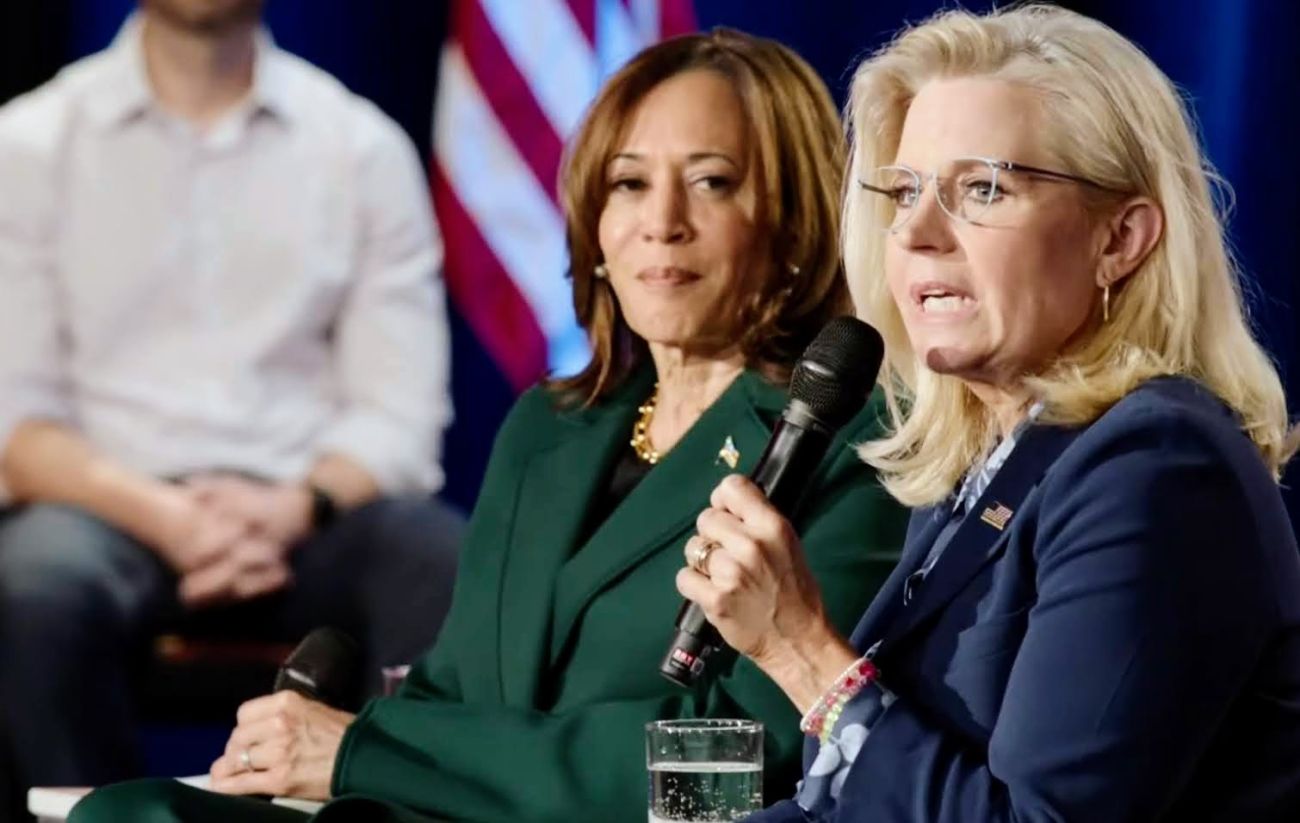
Republicans in exile: Harris encourages crossover votes
Michigan has a rich Republican tradition, but the rise of the MAGA movement has left some feeling politically homeless, and Trump’s response to the Jan. 6, 2021, attack on the US Capitol acted as an accelerant for some conservatives’ concerns.
Harris has been seeking to capitalize on that queasiness. She appeared in Royal Oak with Republican former Rep. Liz Cheney earlier this month, and she’s welcomed endorsements from Michigan Republicans like former US Reps. Fred Upton, David Trott and Joe Schwarz.
Upton, upon endorsing Harris, called Trump “totally unhinged,” and Trott said the election is not about issues, but character.
Robert Schwartz, an activist who pushed Democrats to vote for Nikki Haley in the Republican primary, is now using more than $1 million in targeted digital ads in Michigan to attempt to convince those voters that Harris really isn’t all that liberal.
“We're trying to make sure Michiganders, predominantly in … the Detroit suburbs and in the Grand Rapids suburbs, feel comfortable,” Schwartz told Bridge in an interview. “Their party has kind of left them, and we want to make sure that they know it's okay to vote for Kamala Harris.”
He theorizes voters already know about Jan. 6 and Trump’s views, but are wavering on policy, arguing “she's left of center, but her economic policies are actually better than Trump's.”
“Looking at Trump's tariff policies and how that's going to be a tax on middle class people, Kamala Harris wants to give a tax cut to 100 million people,” Schwartz said. “Those types of arguments we've found are much more persuasive than ‘Trump’s a fascist’ or whatever.”
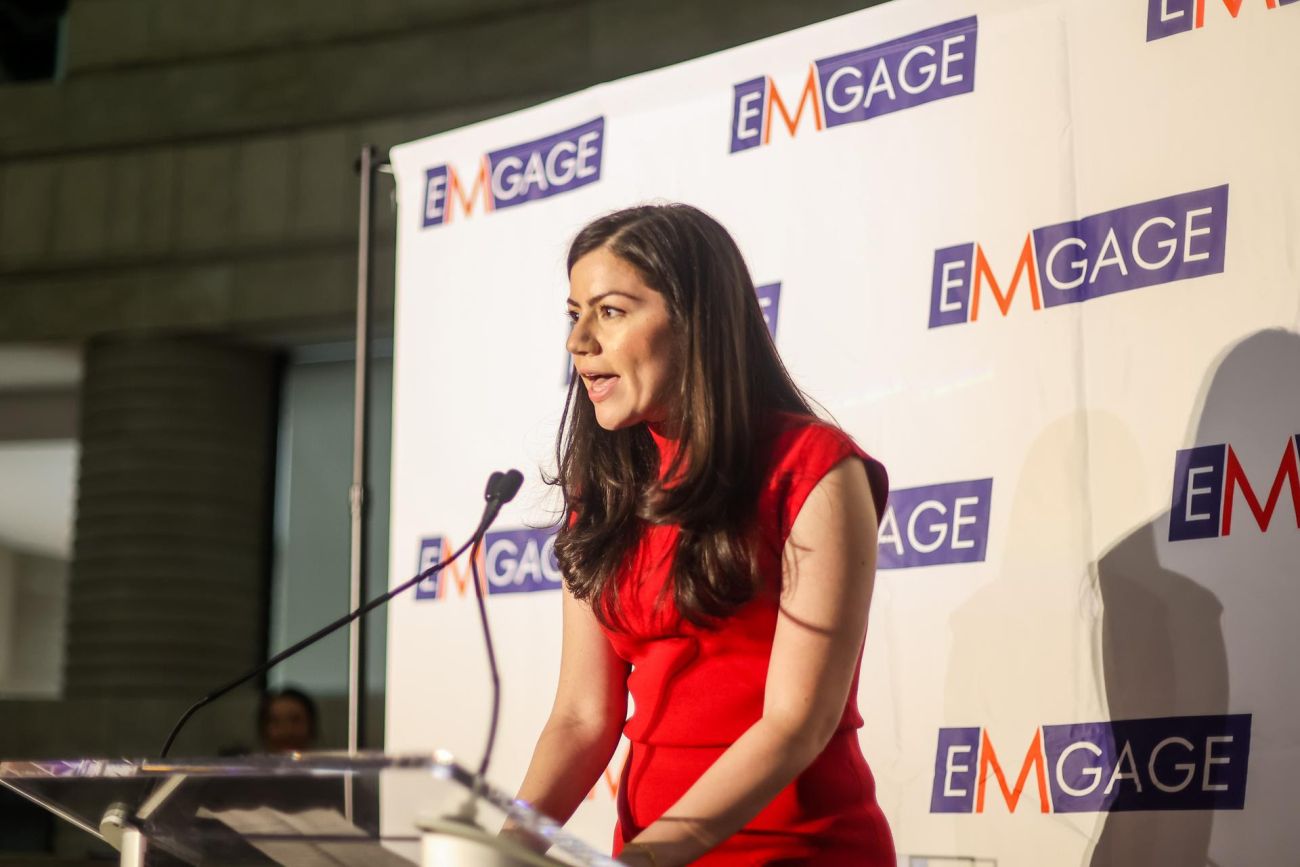
Arab Americans: Frustrated by war, some back Trump
Michigan is home to close to 400,000 Arab Americans, according to the Arab American Institute, many of whom still have family in the Middle East, in close proximity to the violence that has wracked that region.
Those voters were once reliably Republican, but discrimination after the 9/11 terrorist attacks and the war in Iraq changed that and swiftly shifted many toward Democrats.
But since 2022 there have been renewed efforts by Republicans to sway Arab Americans back to the GOP, with an emphasis on the culture wars and the economy, issues that continue to resonate strongly among older voters.
The state GOP had struggled to capitalize on those inclinations. Then came the war in the Middle East, precipitated by Hamas’ attack against Israel on Oct. 7, 2023, and the tens of thousands of civilian deaths that followed in Palestine.
Michiganders displeased with the Biden administration’s handling of the conflict, and the president’s support for Israel throughout, took out their frustrations at the ballot box during the Feb. 28 presidential primary.
About 13% of Democratic primary voters — a little over 100,000 people — selected “uncommitted” in lieu of a candidate. In Dearborn, Dearborn Heights and Hamtramck, which are heavily Arab and Muslim, more than 45% of voters cast “uncommitted” ballots.
Harris has formally met with the national co-founders of the national uncommitted movement, who have voiced opposition to a Trump presidency but declined to endorse Harris and have continued to criticize the administration. They’ve urged Harris to call for an arms embargo on Israel, which she has refused to do.
Critics have labeled the war against Hamas a Palestinian genocide and find the the candidates’ disagreement on that point deeply frustrating, if not disqualifying.
Emgage Action, a liberal Muslim advocacy group that endorsed Harris, is working to bring voters back to Democrats, largely by emphasizing that Trump has offered Israel carte blanche in the conflict.
Neither Trump nor Harris has articulated a plan to end the fighting, but Emgage National Deputy Organizing Director Nada Al-Hanootiuses a simple argument to contrast the candidates.
“How can (Trump) end this when he hasn’t called for a ceasefire? He's actually been emboldening (Israeli president Benjamin) Netanyahu,” she said. “Vice President Harris has been calling for a ceasefire time and time again.”
That’s not enough, though, for Michiganders who have had dozens of family members killed or relatives facing homelessness after fleeing Israeli airstrikes. They aren’t convinced Harris, who has called the civilian deaths “unconscionable” would offer a substantively different approach.
The mayors of Hamtramck and Dearborn Heights are publicly backing Trump. They’ve appeared at events and on press calls, arguing he’s the better choice for a shot at peace.
Bill Bazzi, the Lebanese-American mayor of Dearborn said the people in his community “want a shift, and they're not leaning towards a Democrat in this election.”
Michigan’s Arab American News, a prominent voice in the community, urged readers to get out and vote — but leave their ballots blank for the presidential and US Senate races.
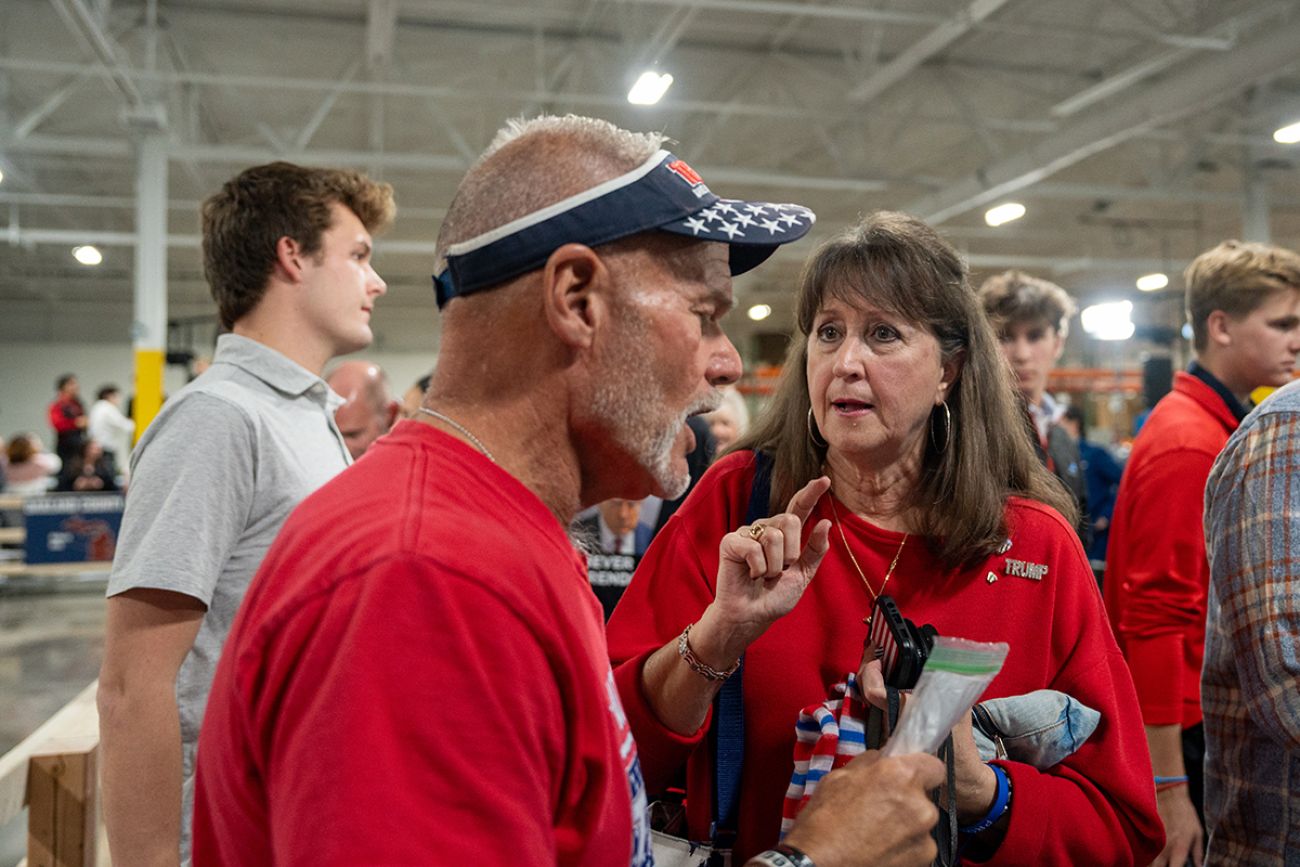
Union workers: Trump, Harris battle over blue-collar vote
Trump and other Republicans have aggressively wooed blue-collar union workers in Michigan by denigrating electric vehicles, arguing the shift away from internal combustion will ultimately mean fewer jobs.
The United Auto Workers union and the AFL-CIO have each endorsed Harris, as has the Michigan Teamsters. But the national Teamsters union refused to back her, citing internal polling showing a majority of its members supported Trump.
Trump won Michigan and the White House in 2016 based in no small part on his gains among white union households, campaigning in Michigan heavily on international trade and industrial decline.
This cycle, he’s attacked Biden and Harris for their efforts to pivot the auto sector toward electric vehicles and claimed the key Michigan industry would be destroyed in three years if he’s not elected.
Brian Pannebecker, founder of Auto Workers for Trump and a fixture at Michigan campaign rallies, joined him at a recent event in Hamtramck and said "more and more" UAW members are backing the former president.
"EVs might have been the final nail in the coffin for us, but President Trump has a strategy - unlike his opponent, he knows what he needs to do to stop it," Pannebecker said.
Harris and her campaign have also continued to target blue collar workers and tout recent manufacturing investments, most recently this week when she visited a union training facility in Macomb County and Hemlock Semiconductor near Saginaw, which is expanding thanks to a $325 million federal grant.
Earlier in the month, she visited a union facility in Lansing that represents workers at the Grand River Assembly Plan, which was laying off workers before receiving a $500 million federal award to retool for EV production.
UAW president Shawn Fain has also become a significant surrogate in Michigan for Harris.
“(Trump) did nothing except more of the same,” Fain said in an interview earlier this month. “The rich get richer, keep outsourcing our work, and the handful at the top and the shareholders take all the money, and the people that create the wealth, the workers who generate those profits, get left behind. And that's the reality of Trump's presidency the first time.”
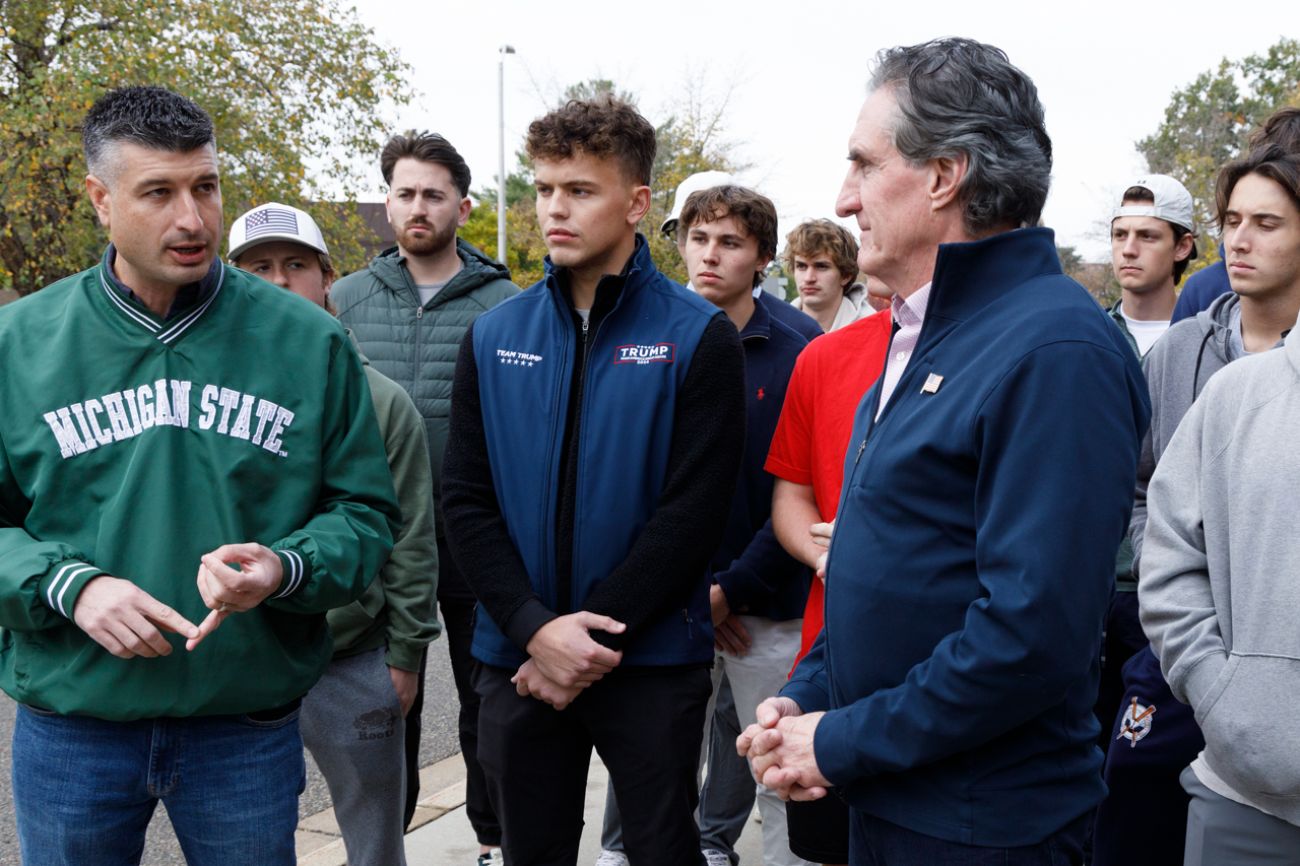
Young voters: Democrats seek to stoke turnout
In 2022, long lines of students waiting to register and vote in Ann Arbor and East Lansing on Election Day stretched long into the night. The last students cast their ballots at 2 a.m. the next day in Ann Arbor.
Long lines are unlikely this year due to new early voting options, but Democrats are hoping for similar enthusiasm among young voters, who tend to vote for liberal candidates and are a key part of the Democratic coalition.
Marie Wicks, the city clerk in East Lansing, said she’d been impressed by the turnout she’s seen thus far, which reminds her of a surge of enthusiasm in 2016 when Michigan State University students packed the Breslin Center to see then-candidate Bernie Sanders.
“I'm so pleased with the turnout so far. I'm really happy that we started early,” Wicks said.
Early in-person voting in the city has increased day-by-day. More than 500 residents voted on Oct. 29 and more than 2,300 have voted in total.
Both MSU and the University of Michigan have established satellite clerk’s offices on campus, allowing students to register and vote in a single visit. Students love the state’s new custom “I voted” stickers, according to Wicks, who suggested that may be a motivating factor for some.
But students also haven’t forgotten the ongoing conflict in Gaza. The uncommitted movement did better than the state average in Ingham and Washtenaw counties, where MSU and the University of Michigan are located and tensions linger.
MSU College Democrats president Liam Richichi acknowledged the issue comes up a fair bit, but he said Harris’ emergence as the Democratic nominee has done a lot to generate enthusiasm.
That’s true for Gerard Stancell, a first-year student at MSU, who told Bridge he is “a lot more excited now that Biden has stepped down.”
He’s hopeful that with Harris in office, she can be pressured to take more action in the Middle East, unlike Trump, who he said he thinks would be “infinitely worse.”
See what new members are saying about why they donated to Bridge Michigan:
- “In order for this information to be accurate and unbiased it must be underwritten by its readers, not by special interests.” - Larry S.
- “Not many other media sources report on the topics Bridge does.” - Susan B.
- “Your journalism is outstanding and rare these days.” - Mark S.
If you want to ensure the future of nonpartisan, nonprofit Michigan journalism, please become a member today. You, too, will be asked why you donated and maybe we'll feature your quote next time!


